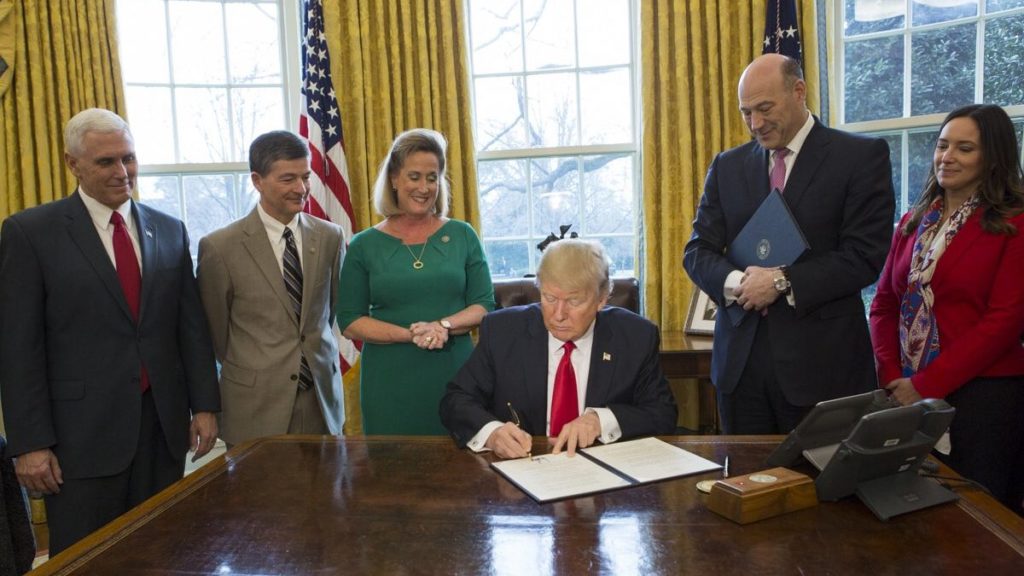President Donald Trump’s tax reform proposal could mean more money in your pocket. But not everyone is rejoicing over the cuts.
Although Congress wasn’t exactly successful in passing major free market healthcare reform within Trump’s first 100 days, some still have hope for tax reform this year. As a nation with the highest corporate tax rate and a 74,000-plus page tax code, America is definitely in need of some tax code simplification.
Trump’s tax reform plan is bold and, if enacted, it could jolt the economy. But what does that exactly look like for entrepreneurs, big business and the middle class?
It means greater economic opportunity and wealth creation. But the reform needs the majority of support from Congressional Republicans first – an achievement that Goldman Sachs speculates as doubtful.
The plan calls for dropping the federal business tax to a flat rate of 15 percent, eliminating the estate tax and providing tax credits for child care, among other action items. These measures could alleviate the federal government’s burden on business in the United States.
Trump’s proposal includes a major overhaul of the federal tax filing. This includes doubling the standard deduction for federal taxes by individuals and families and simplifying the filing process.
Although the cuts in Trump’s tax proposal are something that the majority of Republicans would like, Congress is likely to pass a watered-down version of his plan. The reason? Congressional Republicans just can’t get away with that bold of a plan, especially considering the Goldman Sachs’ estimated $3-4 trillion cost of Trump’s proposal over 10 years. In other words, House Republicans are more likely to favor a revenue-neutral plan than they are Trump’s.
And they’ve put a plan forward.
The House Republican’s proposal is expected to cost about $1 trillion over 10 years in contrast to Trump’s $3-4 trillion. One of the main reasons their plan is more revenue-neutral than Trump’s is the higher corporate tax rate they put forth. Instead of the president’s 15 percent business flat tax, House Republicans are proposing a 20-25 percent corporate tax rate. They are also looking to encourage greater wealth management in the United States so that more dollars can stay at home.
But the corporate tax rate isn’t the only major reform that president aims to work with House Republicans on enacting.
The GOP is aiming to ensure that up to 50 percent of individuals’ and family’s net capital gains, dividends, and investment income can be deducted from federal taxes. Eliminating the Affordable Healthcare Act tax, or Obamacare tax, is also on their agenda.
In an effort to string together a business-friendly tax plan, the GOP is also proposing an elimination of the alternative minimum tax, a federal tax imposed on certain individuals or businesses with a higher secondary income exemption.
Congressional Republicans have struggles to fully embrace Trump-endorsed plans and vice versa, including key policy items such as healthcare and border security. It looks as if an overhaul of the federal government’s tax code faces similar gridlock in Congress.
However, Republicans have mid-term elections to face next year and that could put pressure on members of Congress to at least support moderate tax cuts, a policy still beneficial to entrepreneurs and businesses.
MORE POLICY ANALYSIS ON CAPITALISM.COM
• Dairy Pride Act Is Protectionist Government Intrusion in Declining ‘Milk’ Industry
• $2.7 Billion Fine Against Google Shows EU Is Clueless About Online Business
• Government Fail: Spending $38 to Collect $1 of Student Debt









